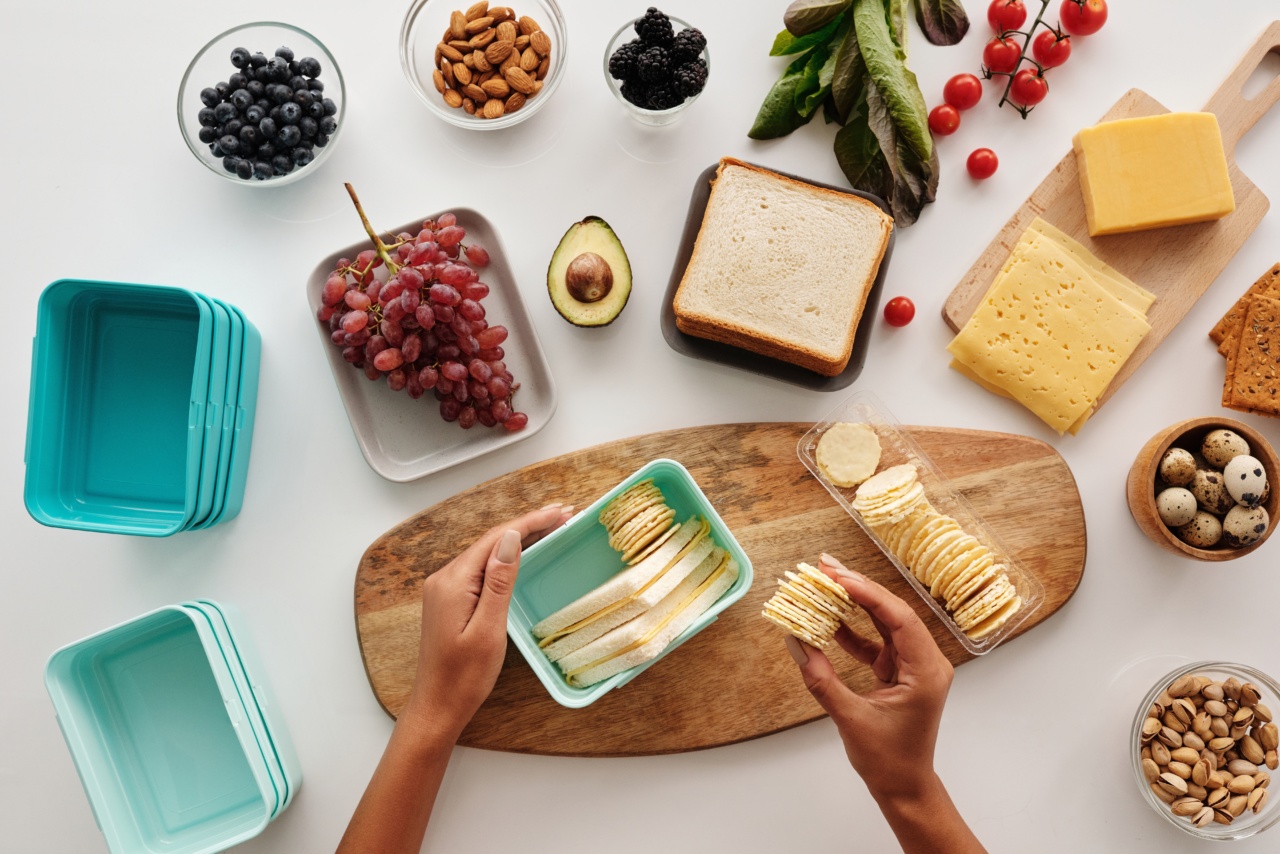Having healthy teeth is not only important for your oral health but also for your overall well-being. The food you consume plays a significant role in maintaining strong teeth and preventing dental issues such as cavities and gum disease.
While there are numerous foods that are beneficial for your teeth, there are also certain foods that you should avoid or consume in moderation to promote optimal dental health. In this article, we will discuss some common foods that you should be cautious about to safeguard your pearly whites.
1. Sugary Snacks and Sweets
Sugar tends to be one of the biggest culprits when it comes to dental problems.
Sugary snacks and sweets are major contributors to tooth decay and cavities, as bacteria in your mouth feed on the sugar, producing acids that erode the enamel of your teeth. It is, therefore, important to limit your consumption of sugary treats such as candies, chocolates, pastries, and soft drinks.
If you do indulge, remember to rinse your mouth with water afterward and consider brushing your teeth to minimize the exposure of sugar to your teeth.
2. Acidic Foods and Beverages
Acidic foods and beverages can also be detrimental to your dental health. Consuming high levels of acidity can gradually wear away the enamel, making your teeth more susceptible to decay and sensitivity.
Citrus fruits, fruit juices, sodas, and even some salad dressings are examples of acidic foods and beverages that you should consume in moderation. Be sure to rinse your mouth with water after consuming acidic substances and wait at least 30 minutes before brushing your teeth, as brushing immediately can cause further damage to the softened enamel.
3. Sticky and Chewy Foods
Sticky and chewy foods such as caramel, toffees, gummy candies, and dried fruits can be harmful to your teeth. These foods tend to adhere to the tooth surface and may linger for a longer period, increasing the risk of tooth decay.
Their sticky nature makes it difficult for saliva to wash away the remnants, allowing bacteria to feed on the sugars and produce harmful acids. If you do indulge in these treats, remember to rinse your mouth thoroughly with water to minimize the sugar exposure to your teeth.
4. Carbonated and Sugary Drinks
Carbonated and sugary drinks such as cola, energy drinks, and sports drinks can wreak havoc on your dental health. These beverages are not only high in sugar content but also acidic in nature, which can cause erosion of the tooth enamel.
Regular consumption of these drinks can lead to tooth decay, cavities, and even tooth loss over time. Opt for water or milk instead to maintain your oral health and overall well-being.
5. Starchy and Refined Carbohydrates
Foods such as white bread, chips, crackers, and pasta can be harmful to your teeth if consumed in excess. Starchy and refined carbohydrates break down into sugars in your mouth, leading to an increase in the acid production.
This acid can contribute to enamel erosion and tooth decay. If you consume these foods, make sure to brush and floss your teeth thoroughly to minimize the negative impact on your dental health.
6. Alcohol
Consuming alcohol can have adverse effects on your oral health. Alcohol can cause dehydration in your mouth, leading to a decrease in saliva production.
Saliva plays a crucial role in protecting your teeth by washing away food particles and neutralizing acids. A dry mouth can increase the risk of tooth decay, gum disease, and bad breath. Limiting your alcohol intake and staying hydrated with water can help promote a healthy oral environment.
7. Sticky Popcorn
While popcorn itself is not necessarily harmful, the sticky caramelized version often found at movie theaters can pose a risk to your dental health.
The sticky nature of caramel popcorn can get trapped between your teeth, providing an ideal breeding ground for bacteria. It is recommended to avoid or minimize consumption of sticky popcorn and ensure you floss and brush afterward to remove any debris.
8. Hard Candies and Ice
Sucking on hard candies or chewing on ice may seem harmless, but it can actually lead to dental issues. Hard candies can chip or fracture your teeth, while chewing on ice can cause cracks in your enamel.
Additionally, both habits can wear down your tooth enamel over time. If you have a craving for something sweet or icy, try opting for healthier alternatives or letting the ice melt in your mouth rather than chewing on it.
9. Coffee and Tea
While coffee and tea offer various health benefits, excessive consumption can stain your teeth over time. The dark pigments present in these beverages can gradually discolor your teeth, affecting your smile.
It is advisable to moderate your consumption of coffee and tea and consider using a straw to minimize contact with your teeth. Additionally, rinsing your mouth with water afterward can help reduce the staining effect.
10. Sports and Energy Drinks
Despite being marketed as beneficial for sports performance, many sports and energy drinks contain high levels of sugar and acidity, leading to tooth decay and erosion.
These drinks are often consumed casually without considering their impact on oral health. If you engage in sports or physical activities, opt for water as your primary source of hydration to protect your teeth from unnecessary harm.
By being mindful of these foods and drinks that can harm your teeth, you can take proactive steps to maintain good oral health.
Remember to brush your teeth at least twice a day, floss regularly, and visit your dentist for routine check-ups and cleanings. Protecting your teeth starts with making wise dietary choices that support your overall dental well-being.



























